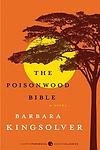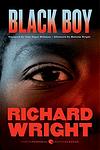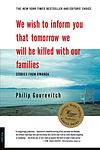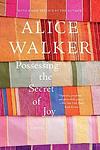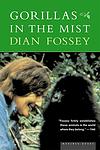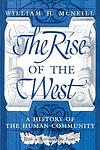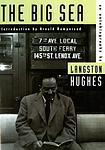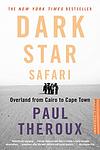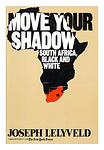The Greatest American "Africa" Books of All Time
Click to learn how this list is calculated.
This list represents a comprehensive and trusted collection of the greatest books. Developed through a specialized algorithm, it brings together 300 'best of' book lists to form a definitive guide to the world's most acclaimed books. For those interested in how these books are chosen, additional details can be found on the rankings page.
Genres
The "Africa" category for books encompasses literature that is set in or about the continent of Africa, its people, cultures, and history. This category includes a diverse range of genres, including fiction, non-fiction, memoirs, biographies, and historical accounts. The books in this category explore the complexities of African societies, their struggles, triumphs, and the impact of colonialism and globalization on the continent. The Africa category offers readers a window into the rich and diverse cultures of Africa, and the challenges and opportunities facing the continent in the modern world.
Countries
Date Range
Reading Statistics
Click the button below to see how many of these books you've read!
Download
If you're interested in downloading this list as a CSV file for use in a spreadsheet application, you can easily do so by clicking the button below. Please note that to ensure a manageable file size and faster download, the CSV will include details for only the first 500 books.
Download-
1. The Poisonwood Bible by Barbara Kingsolver
The Poisonwood Bible is a novel that follows the experiences of a missionary family in the Belgian Congo during the 1960s. The story is told from the perspective of the wife and four daughters of the Baptist minister who drags his family into the politically volatile Congo on a mission to save souls. The novel explores themes of cultural arrogance, religious zeal, and the clash of Western and African values, as well as the personal growth and self-discovery of the women in the family as they grapple with the harsh realities of their new life and the fallout from their father's single-minded vision.
-
2. Roots by Alex Haley
This groundbreaking historical novel follows several generations of an African American family, beginning with Kunta Kinte, a man captured in Gambia in the 18th century and sold into slavery in the United States. Through Kinte and his descendants, the narrative explores the brutal realities of slavery and its aftermath, the struggle for freedom and civil rights, and the perseverance of a family through immense hardship. The story is based on the author's own family history, making it a significant work in the exploration of African American heritage and identity.
-
3. Henderson The Rain King by Saul Bellow
"Henderson The Rain King" is a novel about a wealthy, middle-aged American named Eugene Henderson who, unsatisfied with his life, travels to Africa in search of a deeper meaning. He becomes integrated into a tribe and is mistakenly thought to be the Rain King, a figure of great power and respect. Throughout the novel, Henderson grapples with his own personal growth, the meaning of life, and the clash of different cultures.
-
4. Black Boy by Richard Wright
"Black Boy" is an autobiographical account of a young African-American boy growing up in the South during the early 20th century. The book explores his experiences with extreme poverty, racism, and his struggle to find his place in a society that marginalizes and devalues him. The protagonist's desire for self-expression and understanding leads him to a love of literature and writing, providing him with a means to challenge and critique the oppressive social structures around him.
-
5. Guns, Germs, and Steel by Jared Diamond
The book is a comprehensive exploration of the different trajectories of human societies throughout history. It argues that environmental factors, rather than racial or cultural differences, are the primary reason why some societies developed more advanced technology and political systems. The author uses a multidisciplinary approach, drawing from fields such as geography, evolutionary biology, and linguistics, to support his thesis. The book covers a wide range of topics, including the domestication of plants and animals, the invention of writing, and the spread of diseases.
-
6. Mating by Norman Rush
"Mating" is a novel that follows the story of a female anthropologist who is doing her fieldwork in Botswana. She falls in love with an eccentric and charismatic intellectual who has created a utopian matriarchal village in the Kalahari desert. The narrative explores themes of love, feminism, and idealism as it delves into the complexities of human relationships and societal structures.
-
7. We Wish to Inform You That Tomorrow We Will Be Killed With Our Families: Stories from Rwanda by Philip Gourevitch
This book is a chilling account of the Rwandan genocide that took place in 1994, where an estimated 800,000 to 1 million Tutsis and moderate Hutus were systematically murdered within a span of 100 days. The author provides a detailed narrative based on interviews with survivors and perpetrators, shedding light on the horrifying events, the international community's failure to intervene, and the aftermath of the genocide. The book serves as a powerful critique of political indifference and a poignant exploration of the depths of human brutality.
-
8. Possessing the Secret of Joy by Alice Walker
The novel explores the life of Tashi, an African woman who voluntarily undergoes the traditional ritual of female circumcision, a decision that haunts her as she moves to the United States, marries, and bears children. The emotional and physical repercussions of this act, along with her struggle to understand and reconcile with her cultural heritage, form the heart of the story. The narrative presents a powerful critique of the practice, highlighting its traumatic consequences on women's lives while also exploring themes of cultural identity, tradition, and personal freedom.
-
9. Travels With Myself And Another by Martha Gellhorn
In this vivid memoir, a renowned journalist recounts her adventures across the globe during the mid-20th century, sharing tales of her journeys alongside a mysterious companion referred to as "another." With a sharp wit and a keen eye for detail, she navigates through various landscapes, from the treacherous terrains of China during the Sino-Japanese War to the unforgiving deserts of Africa. Her stories are filled with humor, humanity, and a relentless quest for truth, offering a window into the tumultuous world events of her time as well as a deeply personal narrative of a woman who lived fiercely and fearlessly, embracing the world with an insatiable curiosity.
-
10. Gorillas In The Mist by Dian Fossey
This book is a remarkable account of an eminent primatologist's thirteen-year study and close encounters with the mountain gorillas of the African rainforest. The author immerses herself in the lives of these majestic creatures, observing their complex social structure, behaviors, and interactions. Through her passionate and dedicated research, she develops a deep bond with the gorillas, gaining unprecedented acceptance by the animals and a unique insight into their world. The work also highlights the threats to the gorillas' survival, primarily from poaching and habitat destruction, and the author's relentless efforts to protect these magnificent animals and their environment.
-
11. The Rise of the West by William H. McNeill
"The Rise of the West" is a comprehensive historical narrative that explores the development of Western civilization from the early stages of human history to the 20th century. The book provides a detailed analysis of various civilizations around the world, their interactions, and the resulting cultural exchanges that have shaped the modern world. It also discusses the significant factors, such as technological advancements, religious transformations, and political changes, that have contributed to the West's ascendancy.
-
12. The Big Sea by Langston Hughes
"The Big Sea" is an autobiography that explores the life of a significant figure in the Harlem Renaissance. The narrative follows his early life in the Midwest, his travels around the world as a seaman, and his experiences in New York during the 1920s, where he was a central figure in the Harlem Renaissance. Throughout the book, the author offers his observations on racism, class, and the creative process, providing a vivid and insightful portrait of a complex era in American history.
-
13. Praying for Sheetrock by Melissa Fay Greene
"Praying for Sheetrock" is a non-fiction narrative that tells the story of racial tension and civil rights struggles in a small coastal town in Georgia during the 1970s. It focuses on the experiences of the African American community who, led by a charismatic shrimp boat worker, stand up against the corruption and racial discrimination perpetrated by the town's white sheriff and his deputies. The book provides an intimate portrayal of the town's residents, their hardships, and their fight for justice and equality.
-
14. Fata Morgana by William Kotzwinkle
"Fata Morgana" is a novel that weaves together elements of fantasy and reality, following the story of a successful screenwriter who embarks on a surreal journey after encountering a mysterious antique mirror. The mirror serves as a portal to an alternate dimension, where the protagonist is confronted with illusions and temptations that challenge his perceptions of life and art. As he navigates through this dreamlike world, he must distinguish between what is real and what is a mirage, all while grappling with his own desires, ambitions, and the seductive allure of the fata morgana—the mirage of water in the desert, symbolizing the elusive nature of his quest.
-
15. Dark Star Safari by Paul Theroux
In this travel memoir, the author recounts an overland journey across Africa, starting from Cairo and ending in Cape Town. Along the way, he traverses a continent rich with diverse cultures, landscapes, and histories, while also confronting the stark realities of poverty, political turmoil, and the complex legacies of colonialism. His encounters with aid workers, missionaries, and locals provide a nuanced perspective on the challenges and beauty of Africa, as well as a critical look at the effects of foreign aid and development. The narrative is a blend of adventure, reflection, and social commentary, revealing the author's deep fascination with the continent and its people.
-
16. Against the Day by Thomas Pynchon
The novel is a sprawling epic that spans the period from the 1893 World's Fair to the years following World War I. It follows the stories of several characters including the anarchist Traverse family, a group of balloonists, a detective, and a mathematician. The book explores themes of anarchism, capitalism, and technology, and incorporates elements of science fiction, adventure, and historical fiction. It is noted for its complex structure and dense, multifaceted narrative.
-
17. Move Your Shadow by Joseph Lelyveld
This book provides an insightful and detailed account of life under apartheid in South Africa. The author, a former New York Times correspondent, presents a deeply personal and political narrative, exploring the daily lives of people from all walks of life, from black miners to Afrikaner bureaucrats, and the complex and often brutal realities they face. The book also delves into the historical, economic, and political factors that have perpetuated apartheid, as well as the resistance movements and international pressures that have sought to dismantle it.
-
18. Alphabetical Africa by Walter Abish
The book is a unique literary experiment that plays with linguistic constraints, where each chapter is constrained by the letters of the alphabet. The first chapter exclusively uses words beginning with the letter 'A', the second chapter incorporates words beginning with 'A' and 'B', and so on, adding one letter per chapter until the entire alphabet is used. Once at 'Z', the process reverses, subtracting one letter per chapter. This structure frames a narrative that spans the African continent, blending themes of love, violence, and geography, all while showcasing the author's fascination with language and its limitations.
-
19. Water Music by T. C. Boyle
"Water Music" is a historical fiction novel that follows the adventures of two men, an explorer and a petty criminal, during the late 18th century. The narrative alternates between the perspectives of the explorer, who embarks on a quest to discover the source of the Niger River in Africa, and the criminal, who is trying to navigate the underbelly of London. The novel blends humor, rich historical detail, and adventure as it explores themes of ambition, survival, and the clash of cultures.
-
20. The Short Happy Life of Francis Macomber by Ernest Hemingway
"The Short Happy Life of Francis Macomber" is a story about a wealthy American man who, while on a safari in Africa, gains courage and personal growth after initially behaving in a cowardly manner when faced with danger. This transformation, however, leads to his wife killing him, possibly accidentally, out of fear that his newfound courage would end their marriage. The narrative explores themes of courage, masculinity, and the dynamics of power in relationships.
-
21. The Fate Of The Elephant by Douglas H. Chadwick
"The Fate of the Elephant" is an in-depth exploration of the elephant, delving into its natural history, the ecological and cultural significance it holds across various societies, and the severe threats it faces due to habitat loss and poaching. The book provides a comprehensive overview of elephant behavior and intelligence, while also examining the complex relationship between humans and elephants. Through a blend of scientific research and personal anecdotes, the narrative highlights the urgent need for conservation efforts to ensure the survival of these majestic creatures, which are deeply intertwined with both ecosystems and human heritage.
-
22. Empire Of Cotton: A Global History by Sven Beckert
"Empire of Cotton" by Sven Beckert is a comprehensive global history of cotton, exploring its impact on the world economy, politics, and society from the 18th century to the present day. Beckert argues that cotton played a crucial role in the development of capitalism, colonialism, and imperialism, and that its production and trade were intimately linked to the exploitation of labor, the growth of slavery, and the rise of industrialization. The book offers a fascinating and thought-provoking perspective on the complex and often violent history of cotton and its enduring legacy in the modern world.
-
23. I Married Adventure by Osa Johnson
"I Married Adventure" is an autobiographical account of the author's life and travels with her husband, as they explored and documented wildlife and indigenous cultures in Africa, Borneo, and the South Seas during the early 20th century. The book is filled with thrilling adventures, dangerous encounters with wild animals, and fascinating insights into tribal cultures, all captured through the lens of their camera. The author's courage, resilience, and love for adventure shine through, making it an inspiring and captivating read.
-
24. The Making Of A Tropical Disease by Randall M. Packard
This book offers a comprehensive history of malaria, tracing its impact on human societies over the millennia and examining the socio-economic and environmental factors that have influenced its spread and severity. The narrative delves into the evolution of medical and scientific understanding of the disease, the development of public health responses, and the challenges of controlling malaria in various geopolitical contexts. It highlights the interplay between colonialism, global economic policies, and disease control efforts, revealing how historical and structural inequalities have shaped the global burden of malaria. Through a detailed analysis, the book provides insights into the complexities of malaria as not just a biological phenomenon but a "tropical disease" deeply entangled with human history, politics, and the environment.
-
25. Black and Blur by Fred Moten
"Black and Blur" is an exploration of black studies, performance, aesthetics, and politics. It delves into the intersections of critical theory, social science, and philosophy, challenging traditional definitions and understandings of blackness. The book uses an array of topics such as contemporary art, music, and literature to deconstruct and critique the conventional frameworks of authority, identity, and culture. It presents a new perspective on the complexities of blackness and the potential for social and political change.
Reading Statistics
Click the button below to see how many of these books you've read!
Download
If you're interested in downloading this list as a CSV file for use in a spreadsheet application, you can easily do so by clicking the button below. Please note that to ensure a manageable file size and faster download, the CSV will include details for only the first 500 books.
Download